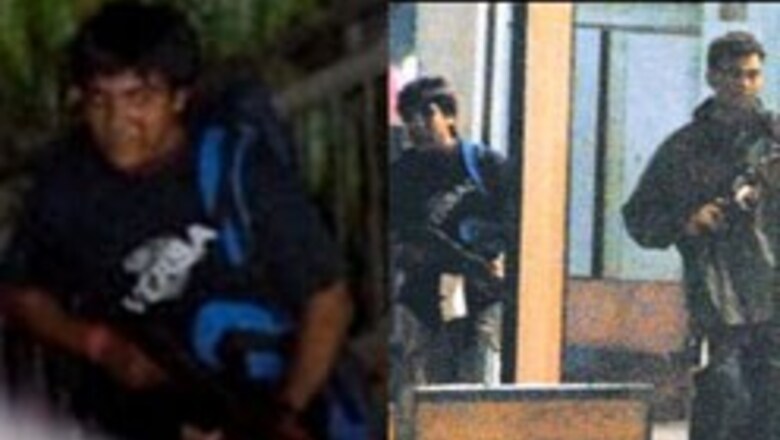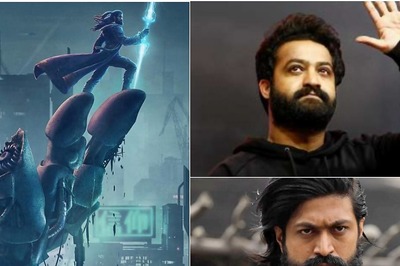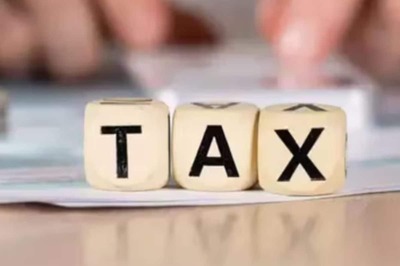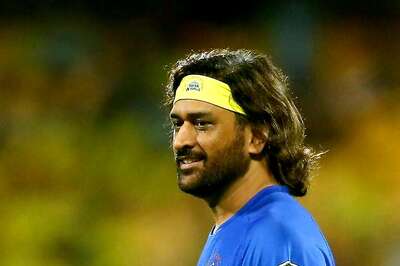
views
New Delhi: A week is but a blink of an eye in the life of a nation but the past seven days will be remembered as a watershed week in contemporary history of India and, to an extent, the world.
This is what a week can do:
Last Wednesday Pakistani Foreign Minister Shah Mahmood Qureshi was in India, and the two countries were reviewing the progress of their bilateral Composite Dialogue. This Wednesday, the two South Asian neighbours are talking of military options.
It all started with a little rubber dinghy - reportedly stopped by security personnel but let off - moving to Mumbai in the Arabian Sea. Ten terrorists landed at a a tiny fishing port near Cuffe Parade in south Mumbai's upscale Colaba area Wednesday morning, according to investigators. They split into five pairs and got into cabs for the targeted locations.
While one group went to the crowded Chhatrapati Shivaji Terminus, one of the city's main railway stations, another went to the Oberoi Trident Hotel at Nariman Point. The remaining three pairs went to the Taj hotel, Leopold Café and Nariman House, which housed a Jewish centre - all in Colaba.
When 'Breaking News' scrolls flashed on TV screens reporting of indiscriminate firing at the railway station and a five-star hotel, many initially thought it was a throwback to the good old days of 1980s, when underworld gang wars were common in the metropolis.
A few horrible hours later, people across the world sat before their TV sets watching the tragedy unfold.
Within hours, three of the most decorated Mumbai Police officials including Anti-Terrorism Squad (ATS) chief Hemant Karkare were no more, an unspecified number of guests at two luxury hotels including the landmark Taj were hostage to gunmen and elite Black Cat commandos of the National Security Guard (NSG) were preparing to launch Operation Black Tornado.
India, no stranger to terror strikes, realised - as Prime Minister Manmohan Singh told an all-party meeting Sunday - that this one was different.
Jaipur, Bangalore, Ahmedabad and New Delhi among other places have been visited by the merchants of death this year with mind-numbing regularity month after month, but this one in Mumbai, India's financial and entertainment capital, was different.
This was the beginning of the longest-running televised incident since 9/11 - and talking heads on TV were to draw many similarities between the two in the days to come.
TV reporters stationed outside the terror targets had no clue they would have no respite for next nearly 60 hours as the world with a prayer on trembling lips, saw Black Cat commandos getting dropped from a helicopter on to the Nariman House - where a number of Jews, many of them Israelis, were held hostage.
As Manmohan Singh told the nation in his televised address: "The well-planned and well-orchestrated attacks, probably with external linkages, were intended to create a sense of panic, by choosing high profile targets and indiscriminately killing foreigners."
The 10 hitmen, each heavily armed with one AK-47 army assault rifle, a short rifle, a pistol, several grenades, 10 loaded magazines, and plenty of other ammunition, sophisticated mobile phones, GPS equipment and satellite phones, meanwhile, continued wreak havoc.
They planted five time bombs, including two in taxis, which exploded, and one bomb each near the two hotels and the cafe - all known to be preferred destinations of the business and tourist visitors from abroad.
Their telephonic conversations, intercepted only later, included nerve-tingling dialogues with their masters. "Shall I shoot them", "Shoot", followed by sounds of gunfire - heard across the world on TV sets.
The battle, in which two NSG commando laid down their lives, went on till Saturday morning. A collective sigh of relief from across the globe came when the last Black Cat commando emerging out of a shattered Taj signalled thumbs up.
It was the time for body count: 183 people - fathers, mothers and children including business people and backpack tourists, a rabbi and a veteran journalist - killed, more than 300 injured. Nine terrorists killed, one - Mohammed Ajmal Amir Kasab from Karachi - captured alive.
The images that would remain etched in the collective conscience for a long time to come are flames licking the heritage building of the Taj, just across the road from its younger neighbour, the country's symbol Gateway of India. Two-year-old baby Moshe at a Mumbai synagogue, still searching for his mother as a memorial service was on for his parents, Rabbi Gavriel Holtzberg and Rivka. An Australian tourist jubilant at release from the captivity. Roses, Mumbai girls gratefully offered to the commandos as they returned to their base after the putting their lives at stakes.
Gruesome details of the meticulous planning that went into the 9/11's version-2 are coming out in media reports from Kasab's interrogation and so are alleged prior warnings and tip-offs. Ditto for the Pakistani links of the perpetrators.
After the body count, heads have begun to roll, starting with then home minister Shivraj Patil. Housewives and intellectuals, students and pensioners have hit the streets for the first time, voicing their sympathy for the bereaved families and their outrage at the ineptness of the political leadership and bureaucracy.
This was the week India realised the full significance of being a superpower-in-the-making.




















Comments
0 comment